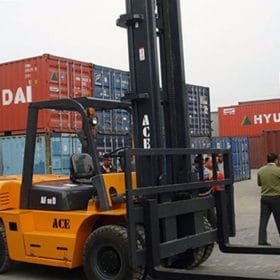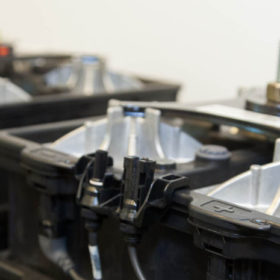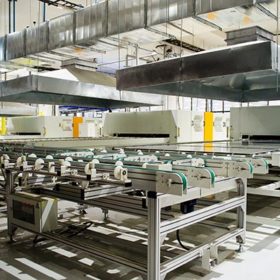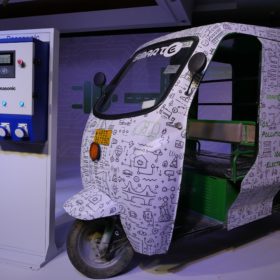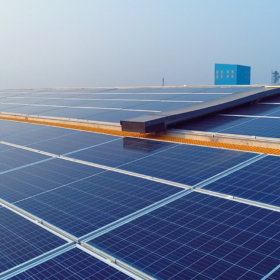Waaree lithium batteries run electric forklifts at Chennai airport
The energy storage system arm of Waaree Group has designed and developed Lithium batteries to power ACE Ltd’s electric forklifts running at Chennai airport.
Union budget: Customs duty rise for solar inverters but modules spared
Imported solar inverters and lanterns will get costlier, as the union budget for the next fiscal year has proposed customs duty increases from 5%, for both items, to 20% and 15%, respectively. The budget, which also incentivizes Indian manufacturing of solar project components whilst giving a helping hand to raw materials, makes no mention of solar cells or panels.
Battery startup Gegadyne Energy raises INR 33.4 crore from V-Guard
The Mumbai-based battery startup develops advanced nano-material composites to enable quick-charging batteries for electric vehicle (EV), industrial storage, and consumer electronics space.
Budget expectations for solar manufacturing
The government should consider offering a 50% capital subsidy for setting up R&D and quality testing infrastructure within the manufacturing units and a 200% super-deduction for the R&D expenditure on new and clean solar technology development. Simultaneously, it should look at implementing tariff barriers on imports for at least four-five years.
India needs to adopt a balanced approach for solar manufacturing
A new report says the imposition of safeguard duties and basic custom duties is only a partial solution to help the domestically produced solar modules remain competitive with imported panels. The government needs to adopt a long-term strategy towards PV manufacturing that supports backward integration and sustained innovation.
Cabinet approves INR22600-crore budget for solar module and advanced battery manufacture
An ambitious, INR146,000 crore, five-year expansion of a previous domestic industry spending program includes money to attract investment into the sustainable energy and transport technologies.
Electric vehicle adoption in India will be led by three-wheelers
Electric vehicles will account for 65-75% of new three-wheeler (3W) sales by 2030. Intra-city transport buses will see 25-40% EV penetration and two-wheelers 25-35%. In four-wheeler passenger vehicles, the market will be driven by shared mobility, while just 10-15% of new car sales for personal mobility will be electric.
Best Power Equipments bets on solar
The electronics manufacturer says it will switch focus to solar panels and lithium battery storage as it launches an inverter series for rooftop PV.
Manufacturing a green solar bounce in India
The nation must look at innovative PV technologies that are low-cost and can be applied in a vast range of new applications.
Odisha tenders for 10 MW of solar in Konark town
Developers have until November 10 to submit bids for the grid-connected, ground-mounted solar generation capacity. The project will be set up on a build-own-operate basis in Kalahandi district to meet the electricity needs of the town.
